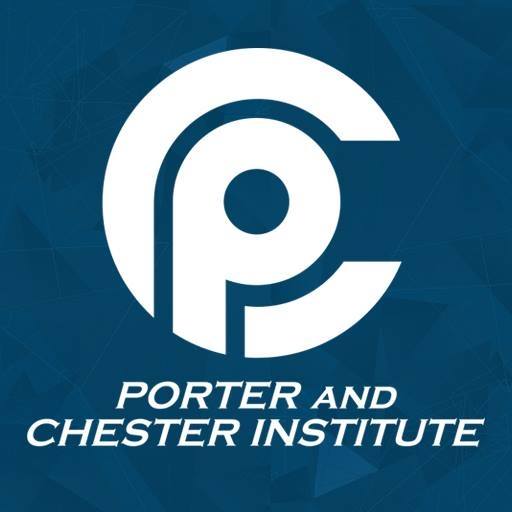Electrical Technicians: Season 1, Episode 4
Electrical Careers with Porter & Chester Institute - Season 1, Episode 4

Porter & Chester Institute
Porter & Chester Institute has been training the American workforce since 1946.

Jim Bologa
Our guest on this episode of Imagine America Radio is president and CEO of Porter & Chester Institute, James "Jim" Bologa

Imagine America Foundation
Porter & Chester Institute has been offering the Imagine America Foundation scholarship and programs for over 15 years!
Don't have time to listen? Read the transcript!
Lee Doubleday: Joining us today on Imagine America Radio is Jim Bologa, president and CEO of Porter and Chester Institute and YTI Career Institute. Porter and Chester has nine campuses, all up and down Connecticut and Massachusetts, while YTI Career Institute has campuses located in Lancaster, and in York, Pennsylvania. These campuses have been educating tomorrow’s workforce since 1946 and are accredited by the Accrediting Commission of Career Schools and Colleges. Porter and Chester trains its students to enter the workforce in the transportation industry, featuring PCI’s automotive technology program; the health care industry, featuring PCI’s medical assisting, dental assisting, medical billing and coding, practical nursing, and cosmetology programs; the skilled trade sector, featuring PCI’s HVAC refrigeration, plumbing, electronics, and electrician programs; and the technology sector, featuring PCI’s computer networking technician, and computer-aided drafting and design programs. And for those of you that don’t know, Porter and Chester and YTI Career Institute have offered the Imagine America scholarship to enrolling students for the last 15 years and have awarded over 4,000 students the Imagine America scholarship. So, Jim, thank you for being an Imagine America member, what you do for your students, and also for joining us today! |
Jim Bologa: Lee, thanks very much, and I’m excited to be here with you today. And I’m really excited to talk a little bit more about careers in the electrical field. |
Lee: Leading right into it: today we’d like to discuss the electrical career field. As a leading provider of electrical technician training, we couldn’t think of anybody better to call than Jim Bologa with Porter and Chester and YTI. So let’s start by telling our listeners exactly what an electrical technician is. Can you briefly explain what an electrical technician does? |
Jim: Yeah, Lee. I mean, simply, electricians install wiring that brings electrical power into any type of residential, commercial, or industrial building or structure. And they maintain this wiring as time goes by. They work in accordance with safety rules and regulations to ensure that the building structures have enough power to operate, and they do so in a way that’s safe to all of the building inhabitants. In addition, they also work with many of the devices and pieces of equipment that actually get connected to the electrical grid. |
Lee: Sounds like a lot! So Jim, what does the career outlook look like for an electrical technician? And what’s the national average as an electrician that they can expect to make in a year? |
Jim: Yeah, well, we rely on the Bureau of Labor Statistics and in that data, there is projected to be over 74,000 new openings in the next 10 years. With the field expecting to grow 10% over that time, which is double the average growth rate for all employment sectors. And with regards to pay, I mean for electrical technicians or electricians, I mean, the median pay is around is around $26.50 an hour nationally. And I would say that that rate of pay, obviously comes with some level of experience. And so I would say that someone starting out, the pay would be slightly less than that as you continue to get on the job training hours so that you can fulfill your license requirements. |
Lee: And I’m assuming also, in different pockets of the country, that could be either higher or lower depending. |
Jim: Absolutely, absolutely. I would say that the geographical area that you live in will make a difference. |
Lee: With electrical technicians being in such high demand, it seems like this would be something worth getting an education in. Is now a good time to become an electrical technician? And how long does it typically take to graduate with an electrical technician program? |
Jim: Yeah, I would say that we’re currently seeing employment demand remain very strong largely based on a number of initiatives happening throughout the country, ranging from installing solar panel fields to just new business in commercial construction, as well as the maintenance of the existing grid. And I would say that for somebody looking to get into this profession or trade, generally, one would expect to spend maybe as little as 9 months but more likely than not 12 months to complete your educational requirements to become an electrician. Again, depending on whether you attend school during the day and/or during the evening, the hours may vary. So I would put the range at between a year, year and a half, is generally the standard length of an electrical program. |
Lee: I think that’s great. I could see somebody deciding that they would like to be an electrician after hearing how in demand this career field really is. And just knowing that you would be able to get your education, get out of education and into the workforce within 12 months. I mean, that’s incredible. I just think that’s really strong and powerful and definitely something this country needs. Now, Jim, a lot of our audience works in high schools, workforce development boards, and VA offices. They might be in contact with people who are looking for direction. What are three or four personality traits that would make a great electrical technician that may help identify people who are coming in that would make a great fit for this career choice? So, I’m a guidance counselor, or I work at a workforce board or a VA office, and I see people all the time. What are three or four personality traits that would help me identify somebody who would make a great candidate for this career? |
Jim: Yeah. I mean, I would say speaking with employers that hire graduates, I would say that there’s a few things that employers are looking for. The first thing they’re looking for is employees that they can count on to show up to work. So attendance and prompt attendance is really key. I would also say that as an employee of an electrical contracting firm or company, your appearance also matters because you’re out generally on job sites in front of potential customers, so appearance is very important. And then I would say that your attitude towards lifelong learning is also very important in what employers are looking for. They’re looking for folks who get a solid base understanding in terms of their skill and understanding that they’ve got a base level in terms of changeable skills that they can use in the field. But they’re looking for employees who are looking to learn and grow. And I would say in the electrical field, you need to be willing to work with your hands a bit, and you also need to be willing to work as a team member and collaborate with your team members. And, finally, I would just simply say that you also need to have some math skills because there is some math that’s required for electrical. |
Lee: I got you. Okay, cool. So sounds like if you’re a hard worker and you’re willing to learn, this could be a great career opportunity for you? |
Jim: Absolutely. |
Lee: Now, as the president of Porter and Chester and YTI Career Institute, I’m sure you’ve seen a fair share of success stories. But what would you say is the biggest thing holding people back from deciding to get an education to go to school to become an electrical technician, or just to go to school in general? And what advice should Imagine America be giving to individuals who are thinking about going to school to become an electrical technician, or just thinking about going to school in general, but might be afraid of are they going to fit in, is it going to be expensive, or just some of the typical things that you hear students being held back, maybe within even maybe their own lives? |
Jim: Yeah. I mean, I think what we generally see in terms of folks is the fear and the fear of the unknown in starting your educational journey. I mean, I think you fear is this the right career, the right school, will I fit in with the other students? You also have decisions that you have to make in terms of paying for your school, as well. I mean, there’s a fear of, do you have the proper financial resources? And then, I think, the other things that we do see are folks are sometimes fearful of the workload. Sometimes, they’re a little bit fearful of the technology that they might be exposed to. And, I think, for all of us, the one big thing is, can I do this? The fear of failure. Do I have the aptitude and the motivation and the discipline and the drive to succeed? And I think for many of our students who do come to our schools, I would say that this is one of the things that they eventually have to overcome. And once they overcome sort of this initial fear to start, once they get into it, they realize that, yeah, they can do this. |
Lee: Right. Yeah, that’s a great point. And that’s something I wanted to mention as well. We’re both sort of blessed to be in a situation where we’re helping students acquire an education. And a lot of times, these students may be bogged down with some fear. But a lot of what I hear anyway on the scholarship side is, “Man, I’m so glad I did this. I’m so glad that I handled that fear and once I got into it, I ended up finding out I can do it. And now, here I am. I went to college. I got a degree. It took me 12 months but now guess what? I’m in the workforce and I’m making money and I’m able to pay back all of that that I took to go to school and now, I’m in a much better financial situation and I’m employed in a growing career field.” So, I think it’s all great. Now, for our New England-area listeners, Jim, why don’t you tell us a little bit about what’s coming up? I know you have some open houses coming up or some events at your campuses. Why don’t you get a chance to tell the audience about what’s going on over at Porter and Chester and YTI? |
Jim: Yeah. What I would encourage everybody to do is go to our website porterchester.edu or yti.edu. And on our website, we are hosting open houses on Saturdays throughout each and every month. So generally speaking, twice a month, sometimes three times a month, we’ll have an open house on Saturday from 9:00 to 1:00. And all those open houses are listed on our website and you can actually book a reservation. The other thing that I would also encourage folks is that we do have a standing sort of open invitation. We call it Walk-in Wednesdays. Anybody can walk into our campus and ask to meet with a career placement specialist and talk about their interests and take a tour of the school. And, again, one of the things that we’ve been doing is we’ve been encouraging folks in our community to stop on by and just take a tour. And so we do have folks in the community stopping in and trying to really understand, really, what we’re doing. And I think for a lot of folks, what we hear is, “I’ve driven by your school for many years and heard you on the radio or saw you on an electronic billboard, saw somewhere out in the community, and decided to take you up on your offer and stop in,” and was impressed with what they saw. |
Lee: Yeah, you know what? I would even go as far as to urge any of my New England-area, Pennsylvania-area counselors that are nominating students for the high school scholarship to go to Porter and Chester to stop by, maybe do the Walk-in Wednesday or register for an open slot at the open house, just to get an idea of who’s at this school and to see the great things that they’re doing every day. I think it could be really beneficial when the next time you have somebody who is interested in becoming a technician or studying any of the degree programs at Porter and Chester and YTI have to offer. |
Jim: Yeah. Lee, and I would add one other thing. If you are a high school guidance counselor, we do have a section on our website where high schools can go in and book a tour for a group of students to come on down to our school in their areas. And again, I would encourage all the counselors to take a look at that. And again, there’s a place right on our website, porterchester.edu, where they can go ahead and reserve a high school bus tour. We generally do those in the morning, generally between 9:00 and 11:00 in the morning. And we have several high schools throughout New England that are already participating in that program. |
Lee: That’s really interesting and I’m glad you mentioned that! We will include a link to that page that Jim is referring to in the description of this episode. So with that, thank you so much for joining us, Jim. It’s been a pleasure having you on the podcast today and be looking out for some future episodes with you as well. |
Jim: I appreciate the opportunity, Lee. Have a great day. |
Lee: Thanks. You as well. |







